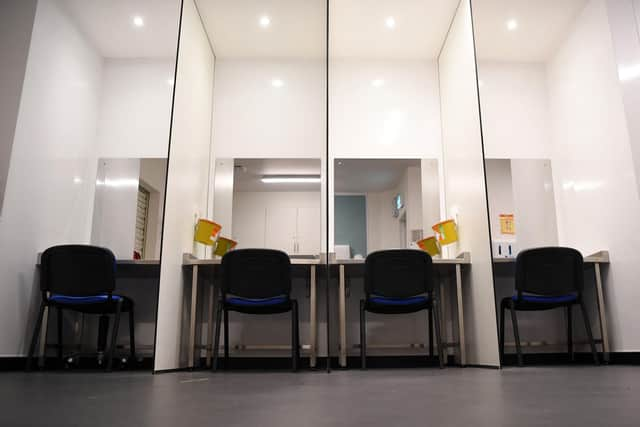Drug consumption rooms: Why Scotland needs more than just one pilot centre in Glasgow – Meg Jones
This week Glasgow received final confirmation that the long-sought overdose prevention centre that campaigners have been crying out for will go ahead. The facility is the first sanctioned centre of its kind in the United Kingdom and is expected to open its doors early next year in the city’s East End.
Overdose prevention centres are places where people can inject drugs under medical supervision, with sterile equipment. They are proven to reduce blood-borne viruses, prevent fatalities and connect people who inject drugs with treatment and health providers on a daily basis.
Advertisement
Hide AdAdvertisement
Hide AdScotland has long been the drug-death capital of Europe, with Glasgow – alongside Dundee – the epicentre of the crisis. Drug deaths fell in consecutive years between 2020 and 2022, but 1,051 people still died in 2022 alone. This week’s announcement will make a positive difference, but it is no secret that this single facility will not be the panacea that alleviates the suffering of thousands of Scots each year. More must be done to tackle the crisis.
Now the Glasgow pilot has finally been signed off, the Scottish Government must act with haste to implement these evidence-based centres in other known hotspots for public injecting and drug fatalities. Given a precedent has been set, consideration must be given as to whether the Lord Advocate could extend the prosecution policy guidance to allow for multiple, simultaneous pilots. If a centre in Glasgow is not in contravention of the Misuse of Drugs Act 1971, then it would appear there is nothing blocking an additional pilot.
There are several different models for operating overdose prevention centres and a two-city, two-model pilot would allow for a comparative evaluation to inform best practice, whilst saving lives in the process. Both Dundee and Edinburgh are primed for a pilot and could be next.
During a visit to Holyrood last year, the charity I work for Cranstoun received the backing of 28 MSPs for a pilot centre in Dundee, whilst Edinburgh City Council recently passed a motion calling for implementation, with experts due to report back on its feasibility soon.
A leading councillor behind the motion, Finlay McFarlane, told The Scotsman that an “overdose prevention site is backed and eagerly anticipated by councillors from across the political spectrum. SNP, Lib Dem, Green, Labour and Conservative councillors have all indicated on multiple occasions that we should do everything we can to support our citizens and stop the deaths.”


If researchers determine that a centre is suitable in Edinburgh, then this could be rolled out at pace. Whilst deaths dropped by over a fifth across the country, figures for the capital increased marginally, with more than 100 people dying in 2022. The evidence in support of these centres already exists, with 200 in operation in countries including the United States, Switzerland and Germany. There is little risk – and much to gain – from piloting an additional overdose prevention centre.
Cranstoun has developed a model which could be rolled out quickly, deliver great results, and importantly be sustainable and cost-effective. Additionally, a fully funded academic evaluation of our model has been agreed already. We will be visiting councillors in Edinburgh’s City Chambers next month to discuss our proposals and offer expertise.
After waiting years for the Glasgow pilot, we cannot afford to rest on laurels whilst around 20 people a week still die from drugs. This week’s announcement is excellent news for those who have been calling for this centre, but we must not lose sight of the enormous loss of life from drugs each year. A two-city pilot will save lives, improve best practice and allow treatment professionals to better understand issues related to drugs in Scotland.
Meg Jones is director at social justice charity Cranstoun, a social justice and harm reduction charity which delivers drug and alcohol treatment services across the United Kingdom.
Comments
Want to join the conversation? Please or to comment on this article.